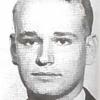Deceased February 23, 2015
View alumni profile (log in required)
Read obituary
50th Reunion Book Entry
In Memory
The class of ’56 has lost an outstanding man. Jon, at the time of his death, was serving as chief of the neurology service at the District of Columbia VA Medical Center, as professor of neurology at Georgetown University and as clinical professor of neurology at the Georgetown University School of Medicine.
His areas of specialty were metabolic disorders such as Leigh’s Disease; the mechanism of action of anti-seizure drugs such as Phenobarbital and Dilantin; and Parkinson’s disease and other movement disorders.
After Amherst Jon earned his M.D. from Columbia College of Physicians and Surgeons. He spent 25 years at Yale, rising from a resident to a full professor of neurology. In 1986 he was appointed chair of neurology at Georgetown University, becoming chairman emeritus in 2000. He was a fellow of the American Academy of Neurology and served as a member of the American Neurological Association for two years.
Jon was also an author. In addition to more than 150 articles, he co-authored a well-known textbook, Behavioral Neurology. He also published a book based on extensive research, What Makes Killers Kill. I have read it, and it is excellent and still highly relevant.
Alan Levenstein ’56 remembers that, during our junior year, he and Jon were cast in a Bernard Shaw one-act play, Great Catherine. The two of them competed for the most outlandish Russian accents they could produce. Alan said that, if Jon had not gone into medicine, he could have been a wonderful character actor. Jon, we will miss you greatly!
James C. Blackburn ’56
